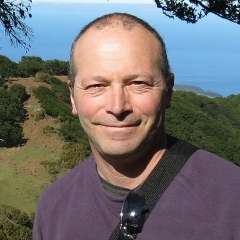Good satire should be timeless, and Janáček’s rarely staged The Excursions of Mr Brouček still hits the mark a century on from its premiere. David Pountney staged the opera at ENO three decades ago, as a pendant to his epoch-making Janáček cycle for Scottish Opera and Welsh National Opera in the 70s and 80s, and he has now returned to it in a new production for Grange Park Opera. Its only other UK appearance in recent years, to my knowledge, was a BBC concert performance in 2007, subsequently released on CD. For ENO, Pountney created his own, somewhat free English translation of the libretto, and appearing again thirty years on it has gained a few more up-to-date barbs, with references to “lockdown parties” and “Boris’ latest balls-up” amid the digs at aesthetes, music critics and sponsors. Even the surtitles went off on a rant of its own at one point, and it was amusing to see the return of such characters as Dudček and Rainček among Pountney’s reimagined lunar characters.
Janáček’s targets, based on a pair of novellas from the 1880s by Svatopluk Čech, were the artistic avant-garde, and cowardice in a time of national crisis. These he projects on to two alcohol-induced ‘excursions’ of a pompous property owner, the eponymous Matěj Brouček, one to a moon populated by the most effete of artistic communities, and the other back to the 15th century and the Hussite rebellions against the German invaders of Prague. Despite the common protagonist, it is very much an opera of two parts, the second making more serious points than the first with its depiction of Brouček as a coward who goes on to claim he saved Prague single-handedly – “just don’t tell anyone,” he signs off (parallels with a certain prime minister didn’t go unnoticed).
Pountney’s 1992 production very much concerned itself with the Czech Velvet Revolution of only three years earlier, and at the height of the Hussite victory scene in this new staging he took a similar temporary detour to 1989. Moreover, although nothing specific was made of it beyond a blue and yellow flag adorning the opera house foyer, it was difficult to watch this second part without thoughts of Ukraine passing through one’s mind.
Yet the emphasis is on humour and the fun is often remorseless, helped by the spectacular stage designs of Leslie Travers, whose set is constructed from giant-sized souvenirs of Prague sitting under a broken commemorative plate of the city. The beer that is the cause of Brouček’s adventures is a constant theme in the designs too, notably with a ‘horse’ made out of an over-sized pilsner can with beer-pumps as legs and ring-pulls as stirrups; and the bigwigs of 15th-century Prague are wheeled around like mobile statues from the Charles Bridge on trolleys constructed from beer crates. Much of the credit must go to Marie-Jean Lecca’s often outrageous costumes, too.
The whole cast, meanwhile, seems to be having a ball. Peter Hoare’s superb Brouček combines the drunkard’s propensity for lethargy alternating with hyperactivity, and manages to shake off every indignity, whether it’s being snubbed by Fflur Wyn’s winningly persistent Málinka (also a lyrical Etherea on the moon and touching Kunka in the 15th century) or battling with the pub’s “khasi”, as he puts it. The rest of the cast reads like a roll-call of the British operatic establishment, with Mark Le Brocq, Andrew Shore, Clive Bayley, Anne-Marie Owens and Adrian Thompson all revelling in their multiple roles across the different times and places, from innkeeper to poet, sacristan to goldsmith.
The excellent young chorus, which also supplied some of the minor roles, exhibited both flexibility and a fresh solidity of tone. The playing of the BBC Concert Orchestra under conductor George Jackson, although always on point and alert to the score’s textural felicities, could have given us more warmth at times, but perhaps one can blame Grange Park Opera’s Theatre in the Woods’ very dry acoustic for that. All in all, though, a rip-roaring evening of opera, both timeless and topical.




